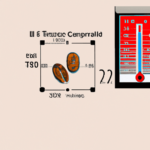Chia Seeds and Digestive Health
14 Ways Seeds Aid in Digestive Health


Looking for ways to improve your digestive health? Look no further! This article explores 14 ways in which seeds can help promote a healthy digestive system.
Just like a well-oiled machine, our digestive tract needs proper care and maintenance. By incorporating seeds into our diet, we can support bowel regularity, reduce bloating and acid reflux, manage irritable bowel syndrome, and enhance overall digestive wellness.
Let’s dive in and discover the incredible benefits of these tiny powerhouses!
Key Takeaways
- Chia seeds promote optimal gut health through their high fiber content
- The fiber in chia seeds acts as a prebiotic, nourishing beneficial bacteria in the gut
- Chia seeds can help reduce gut inflammation due to their omega-3 fatty acids
- Chia seeds aid in reducing bloating, gas, and discomfort
Chia Seeds and Gut Health
Chia seeds have been shown to promote optimal gut health through their high fiber content and ability to aid in digestion. The fiber in chia seeds acts as a prebiotic, meaning it provides nourishment for the beneficial bacteria in our gut. These bacteria play a crucial role in maintaining a healthy gut microbiome, which is essential for overall digestive health.

Studies have also shown that chia seeds can help reduce gut inflammation. Inflammation in the gut can lead to various digestive issues, including bloating, gas, and discomfort. Chia seeds contain omega-3 fatty acids, which have anti-inflammatory properties and can help alleviate gut inflammation.
Incorporating chia seeds into your diet can support a healthy gut microbiome and reduce gut inflammation, promoting better digestive health overall.
Improving Digestion With Chia Seeds
Chia seeds have been shown to boost digestion and improve gut health. These tiny seeds are a natural digestive aid, thanks to their high fiber content and ability to absorb water.
Chia Seeds Boost Digestion
By incorporating chia seeds into our diet, we can enhance digestion and improve overall digestive health. Chia seeds are rich in fiber, which aids in promoting regular bowel movements and preventing constipation. Additionally, chia seeds absorb water and form a gel-like substance in the digestive system, which helps to soften stools and ease their passage through the intestines. This can be particularly beneficial for those who struggle with digestive issues such as irritable bowel syndrome (IBS). Chia seeds also contain omega-3 fatty acids, which have anti-inflammatory properties and can help reduce inflammation in the gut. Furthermore, chia seeds are a good source of protein, which is essential for the repair and maintenance of digestive tissues.

Incorporating Chia Seeds into Recipes:
| Recipe | Description | Benefits |
|---|---|---|
| Chia Pudding | A delicious and nutritious dessert made by mixing chia seeds with milk or plant-based alternatives. | Provides a good source of fiber, protein, and healthy fats. Helps promote satiety and aids in weight management. |
| Chia Smoothie | A refreshing and filling beverage made by blending chia seeds with fruits, vegetables, and liquids. | Rich in antioxidants, vitamins, and minerals. Supports hydration and strengthens the immune system. |
| Chia Energy Balls | Nutrient-packed snacks made with chia seeds, nuts, dried fruits, and other wholesome ingredients. | Offers a convenient and portable source of energy. Provides a balanced combination of carbohydrates, protein, and healthy fats. |
Incorporating chia seeds into our diet through these recipes can not only enhance digestion but also provide a range of other health benefits.
Improved Gut Health
Incorporating chia seeds into our diet significantly improves gut health and enhances digestion. Chia seeds are packed with essential nutrients and fiber, which play a vital role in maintaining a healthy digestive system.
The high fiber content in chia seeds promotes regular bowel movements and prevents constipation, thus ensuring smooth digestion. Moreover, chia seeds contain prebiotics, which act as fuel for the beneficial bacteria in our gut, leading to improved gut immunity.

These beneficial bacteria help break down food and absorb nutrients more efficiently, further supporting digestion. Additionally, chia seeds can aid in weight loss by promoting feelings of fullness and reducing calorie intake.
This can be attributed to their ability to absorb water and expand in the stomach, contributing to increased satiety. Therefore, incorporating chia seeds into our diet can have a positive impact on our gut health, digestion, and weight management.
Natural Digestive Aid
One effective method for improving digestion is by adding chia seeds to our diet. Chia seeds are small, nutrient-dense seeds that have been used for centuries due to their health benefits. They’re rich in fiber, which aids in digestion by promoting regular bowel movements and preventing constipation.
The soluble fiber in chia seeds also helps to feed beneficial gut bacteria, improving gut health and overall digestion. Additionally, chia seeds have been shown to support weight loss by promoting satiety and reducing appetite.

They can also have a positive impact on heart health, as they’re a good source of omega-3 fatty acids, which have been associated with reducing inflammation and improving heart health. By incorporating chia seeds into our diet, we can naturally improve our digestion while also reaping the benefits for weight loss and heart health.
Chia Seeds for a Healthy Digestive Tract
Chia seeds are a valuable addition to a healthy diet, especially when it comes to promoting a healthy digestive tract.
With their high fiber content, chia seeds can help prevent constipation and promote regular bowel movements.
Additionally, chia seeds are rich in omega-3 fatty acids, which have anti-inflammatory properties that can support a healthy gut.

Furthermore, chia seeds have natural detoxification properties that can aid in cleansing the digestive system.
Fiber for Gut Health
Eating fiber-rich foods promotes a healthy digestive tract, benefiting our gut health.
One way dietary fiber contributes to gut health is by promoting the growth of beneficial gut bacteria. Our gut is home to trillions of bacteria, collectively known as the gut microbiota, which play a crucial role in our digestion and overall health.
Research has shown that a diverse and balanced gut microbiota is associated with improved digestive function and a reduced risk of various health conditions, such as obesity, diabetes, and inflammatory bowel disease.

Dietary fiber acts as a prebiotic, providing nourishment to these beneficial bacteria in our gut, allowing them to thrive and maintain a healthy balance.
Chia seeds, in particular, are an excellent source of dietary fiber and can contribute to a healthy digestive tract by supporting the growth of beneficial gut bacteria.
Omega-3 Fatty Acids
To support a healthy digestive tract, incorporating chia seeds into our diet provides us with essential omega-3 fatty acids. Omega-3 fatty acids are a type of polyunsaturated fat that are crucial for maintaining overall gut health. They’ve been shown to reduce inflammation, promote the growth of beneficial gut bacteria, and improve digestion.
Research has found that omega-3 fatty acids play a role in reducing the risk of gastrointestinal disorders such as inflammatory bowel disease and irritable bowel syndrome. These fatty acids help to strengthen the intestinal walls, preventing the leakage of harmful substances into the bloodstream.

In addition, omega-3 fatty acids have been found to have a positive impact on gut motility, which is the movement of food through the digestive system. They can help regulate bowel movements and alleviate symptoms of constipation or diarrhea.
Natural Detoxification Properties
Furthermore, incorporating chia seeds into our diet provides us with natural detoxification properties that support a healthy digestive tract. Chia seeds contain high levels of fiber, which act as a natural cleanser for the digestive system.
This fiber helps to remove toxins and waste products from the body, preventing them from building up and causing harm. Additionally, chia seeds are rich in antioxidants, such as flavonoids and phenolic compounds, which help to protect the cells of the digestive tract from damage caused by harmful free radicals.
These antioxidants also promote the growth of beneficial bacteria in the gut, improving gut function and aiding in the detoxification process. By incorporating chia seeds into our daily diet, we can support our body’s natural detoxification processes and maintain a healthy digestive system.

Promoting Bowel Regularity With Chia Seeds
One way chia seeds can promote bowel regularity is by adding bulk to our stool. When we consume chia seeds, they absorb water and expand, forming a gel-like substance in our digestive system. This gel adds bulk to the stool, making it easier to pass through the intestines and promoting regular bowel movements.
Incorporating chia seeds into our daily diet can be done in various ways. We can sprinkle them on top of our yogurt or cereal, blend them into smoothies, or use them as an egg substitute in baking. By incorporating chia seeds into our meals, we can increase our fiber intake and support healthy digestion.
Now, let’s explore another benefit of chia seeds – their ability to reduce bloating.
Chia Seeds and Reducing Bloating
Chia seeds help reduce bloating by aiding in digestion and promoting a healthy gut. When consumed, chia seeds absorb water and create a gel-like substance in the stomach. This gel helps to soften the food and ensure proper digestion, preventing the buildup of gas and reducing abdominal discomfort.
Additionally, chia seeds are rich in fiber, which promotes regular bowel movements and prevents constipation, another common cause of bloating.
Moreover, chia seeds contain compounds that have been shown to have anti-inflammatory properties, which can help alleviate inflammation in the digestive system and reduce bloating.
Soothing Inflammation With Chia Seeds
Chia seeds have been found to possess anti-inflammatory properties, making them a valuable addition to a digestive health regimen. These tiny seeds provide support to the digestive system by reducing inflammation, which can lead to improved gut function and overall well-being.
Incorporating chia seeds into one’s diet may help soothe gut inflammation and promote a healthier digestive system.
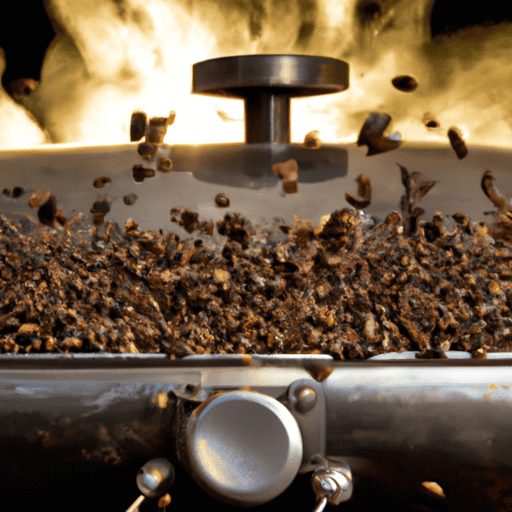
Anti-Inflammatory Properties: Chia Seeds
Sometimes, we find that incorporating chia seeds into our diet helps soothe inflammation in our digestive system. Chia seeds have been recognized for their various health benefits, including their potential anti-inflammatory properties. These tiny seeds are a great source of omega-3 fatty acids, which have been shown to reduce inflammation in the body. Furthermore, chia seeds are rich in antioxidants, such as flavonols and phenolic compounds, that can also help combat inflammation.
When it comes to digestion, chia seeds can provide relief by acting as an energy booster. Their high fiber content helps regulate bowel movements and promote a healthy digestive system. Additionally, chia seeds have the ability to absorb water and form a gel-like substance in the stomach, which can aid in weight management by promoting a feeling of fullness and reducing cravings.
Incorporating chia seeds into our diet can be a simple and effective way to support our digestive health and reduce inflammation.
Digestive System Support: Chia Seeds
Incorporating chia seeds into our diet continues to provide support for our digestive system, particularly in soothing inflammation through their anti-inflammatory properties. Chia seeds are rich in omega-3 fatty acids, antioxidants, and fiber, all of which play a vital role in maintaining a healthy digestive system.

The anti-inflammatory properties of chia seeds help to reduce inflammation in the gut, relieving symptoms such as bloating, gas, and discomfort. Additionally, chia seeds can aid in weight loss due to their high fiber content, which promotes feelings of fullness and helps regulate appetite.
To incorporate chia seeds into our diet, we can add them to smoothies, yogurt, oatmeal, or use them as an egg substitute in baking. By including chia seeds in our recipes, we can enjoy their numerous benefits for our digestive health while adding a nutritious boost to our meals.
Soothing Gut Inflammation: Chia Seeds
One way to soothe gut inflammation is by incorporating chia seeds into our diet. Chia seeds are considered an anti-inflammatory superfood that can support gut healing and repair. Here are two reasons why chia seeds are beneficial for soothing gut inflammation:
- Omega-3 fatty acids: Chia seeds are rich in omega-3 fatty acids, which have been shown to have anti-inflammatory properties. These healthy fats help reduce inflammation in the gut and promote healing.
- Fiber content: Chia seeds are an excellent source of soluble and insoluble fiber. Soluble fiber forms a gel-like substance in the gut, which can help soothe inflammation and support a healthy digestive system. Insoluble fiber adds bulk to the stool, aiding in regular bowel movements and reducing gut inflammation.
Chia Seeds and Aiding Nutrient Absorption
To enhance nutrient absorption, we can incorporate chia seeds into our diet. Chia seeds have been found to play a crucial role in aiding nutrient absorption in the gut. The gel-like consistency of chia seeds, when mixed with liquid, forms a coating that surrounds the seeds. This coating slows down the digestion process, allowing more time for the nutrients to be absorbed by the body.

Additionally, chia seeds contain high amounts of dietary fiber, which helps regulate bowel movements and promotes a healthy digestive system. This fiber acts as a prebiotic, providing nourishment for the beneficial bacteria in our gut.
Furthermore, chia seeds have anti-inflammatory properties that can help reduce gut inflammation, improving overall digestive health.
Supporting a Balanced Gut Microbiome With Chia Seeds
Chia seeds have been found to promote the growth of probiotics in the gut, which can enhance the diversity of gut flora. This is important because a balanced gut microbiome is associated with improved digestion and overall health.
Chia Seeds Promote Probiotics
Promoting a balanced gut microbiome, incorporating chia seeds into our diet supports the growth of probiotics. These beneficial microorganisms play a crucial role in maintaining our gut health. Here’s how chia seeds promote probiotics and contribute to a healthy gut flora:
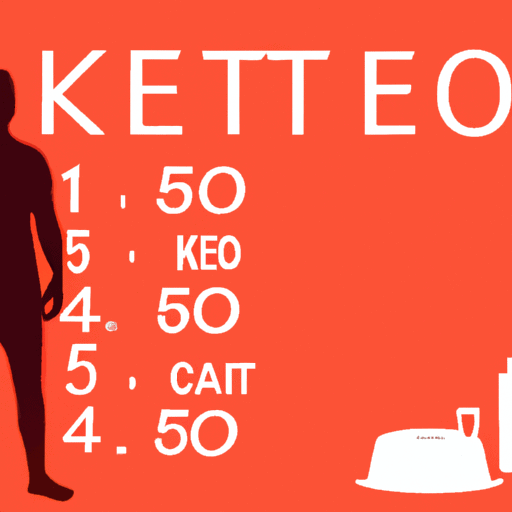
- Chia seeds are rich in prebiotics: Prebiotics are indigestible fibers that nourish the probiotics in our gut. Chia seeds contain soluble fiber, which serves as food for the beneficial bacteria.
- Chia seeds increase microbial diversity: Studies have shown that chia seeds can enhance the richness and diversity of our gut microbiota. A diverse gut microbiome is associated with better overall health and improved digestion.
- Chia seeds reduce inflammation: Chronic inflammation can disrupt the balance of our gut microbiota. Chia seeds are packed with anti-inflammatory compounds, such as omega-3 fatty acids, which can help reduce inflammation and support a healthy gut environment.
Enhancing Gut Flora Diversity
By incorporating chia seeds into our diet, we can further enhance gut flora diversity, supporting a balanced gut microbiome and promoting digestive health. The gut flora, a complex community of microorganisms residing in our digestive system, plays a crucial role in maintaining our overall well-being.
A diverse gut microbiome is essential for optimal digestion and absorption of nutrients, as well as for supporting a healthy immune system. Research has shown that chia seeds can contribute to gut flora diversity due to their high fiber content. Fiber acts as a prebiotic, providing nourishment to beneficial bacteria in the gut. Additionally, chia seeds contain omega-3 fatty acids, which have been linked to improved gut health.
To further support a healthy gut microbiome, incorporating fermented foods into our diet can also be beneficial. These foods, such as yogurt, sauerkraut, and kefir, contain live bacteria that can help restore and maintain a balanced gut flora.
Maintaining gut flora diversity through the consumption of chia seeds and fermented foods can have a positive impact on our overall digestive health and the intricate gut-brain connection.

Chia Seeds for Relieving Constipation
One way we can improve digestive health is by incorporating chia seeds into our diet to help alleviate constipation. Chia seeds are an excellent source of fiber, which plays a crucial role in promoting regular bowel movements.
Here’s how chia seeds can help relieve constipation:
- Chia seeds and hydration:
- When consumed, chia seeds absorb liquid and form a gel-like substance in the digestive tract. This helps to soften the stool and promote easier passage.
- The gel-like substance also helps to retain moisture in the intestines, preventing dry and hard stools that can contribute to constipation.
- Chia seeds for weight loss:
- Being high in fiber, chia seeds can help create a feeling of fullness and reduce appetite, leading to a lower caloric intake.
- By maintaining a healthy weight, we can prevent obesity-related constipation.
Incorporating chia seeds into our diet can be a simple and effective way to promote regular bowel movements and relieve constipation.
Maintaining a Healthy Gut Barrier With Chia Seeds
To maintain a healthy gut barrier, we can incorporate chia seeds into our diet. Chia seeds have been shown to have beneficial effects on gut health, specifically in relation to leaky gut and gut inflammation.

Leaky gut, or increased intestinal permeability, can lead to various health issues, including digestive problems and chronic inflammation. Studies have shown that chia seeds can help improve gut barrier function and reduce leaky gut by promoting the production of tight junction proteins that seal the gaps between intestinal cells.
Additionally, chia seeds contain omega-3 fatty acids, which have anti-inflammatory properties and can help reduce gut inflammation. Including chia seeds in our diet can therefore support a healthy gut barrier and contribute to overall digestive health.
Chia Seeds and Reducing Acid Reflux
Chia seeds help reduce acid reflux by soothing the digestive system and promoting healthy digestion. Here’s how chia seeds can provide acid reflux relief:
- Reducing heartburn with chia seeds: Chia seeds contain a high amount of soluble fiber, which can absorb excess stomach acid and help prevent heartburn. This fiber also promotes regular bowel movements, preventing the build-up of pressure in the stomach that can trigger acid reflux.
- Supporting a healthy esophagus: Chia seeds are rich in omega-3 fatty acids, which have anti-inflammatory properties. These fatty acids can help reduce inflammation in the esophagus, alleviating symptoms of acid reflux such as chest pain and difficulty swallowing.
Chia Seeds for Managing Irritable Bowel Syndrome
Continuing from the previous subtopic, we can utilize the benefits of chia seeds to manage irritable bowel syndrome (IBS).

Chia seeds have shown promising effects in reducing gut inflammation, which is a common symptom of IBS.
The high fiber content in chia seeds helps regulate bowel movements and relieve constipation, a common issue faced by individuals with IBS.
Additionally, chia seeds have been shown to support a healthy gut microbiota. The insoluble fiber found in chia seeds acts as a prebiotic, providing nourishment for beneficial bacteria in the gut.
This can help restore the balance of gut flora and improve digestive function.

Incorporating chia seeds into your diet may provide relief from the symptoms of IBS and promote overall digestive health.
Enhancing Digestive Enzyme Production With Chia Seeds
We can boost our digestive enzyme production by incorporating chia seeds into our diet. Chia seeds are rich in nutrients that support the production of digestive enzymes, which are essential for breaking down food and absorbing nutrients.
Here are two ways in which chia seeds enhance digestive enzyme production:
- Chia seeds are high in fiber, which helps stimulate the production of digestive enzymes. Fiber acts as a prebiotic, nourishing the beneficial bacteria in our gut and promoting a healthy digestive system.
- Chia seeds contain alpha-linolenic acid, an omega-3 fatty acid that has been shown to increase the production of digestive enzymes. This helps improve digestion and nutrient absorption.
By including chia seeds in our meals, we can enjoy the digestive health benefits of boosted enzyme production.

Now, let’s explore how chia seeds promote overall digestive wellness.
Chia Seeds and Promoting Overall Digestive Wellness
To promote overall digestive wellness, incorporating chia seeds into our diet is beneficial. Chia seeds are a nutrient-dense superfood that can support weight loss and improve gut health. These tiny seeds are packed with fiber, which aids in digestion by promoting regular bowel movements and preventing constipation. Additionally, chia seeds contain omega-3 fatty acids, which have anti-inflammatory properties that can help reduce inflammation in the digestive tract.
Incorporating chia seeds into recipes is a simple and delicious way to enjoy their health benefits. They can be added to smoothies, yogurt, oatmeal, or used as an egg substitute in baking.
Here is a table showcasing the nutritional composition of chia seeds:

| Nutrient | Amount per 1 oz (28g) |
|---|---|
| Fiber | 11 grams |
| Protein | 4 grams |
| Omega-3 Fatty Acids | 5 grams |
Frequently Asked Questions
Can Chia Seeds Be Consumed by Individuals With Gluten Intolerance or Celiac Disease?
Chia seeds can be consumed by individuals with gluten intolerance or celiac disease. They are naturally gluten-free and provide a good source of fiber and omega-3 fatty acids, which can support digestive health.
Are There Any Potential Side Effects or Risks Associated With Consuming Chia Seeds for Digestive Health?
There are potential risks and side effects associated with consuming chia seeds for digestive health. However, it is important to note that these risks are minimal and the benefits outweigh any potential drawbacks.
How Do Chia Seeds Compare to Other Seeds in Terms of Their Digestive Health Benefits?
Chia seeds are compared to flax seeds in terms of digestive health benefits, while also considering the benefits of pumpkin seeds. We find that chia seeds offer unique advantages that contribute to a healthy digestive system.
Can Chia Seeds Help With Weight Management and Appetite Control?
Yes, chia seeds can help with weight management and appetite control. They have been shown to regulate blood sugar levels and reduce inflammation, both of which play a role in maintaining a healthy weight and controlling cravings.

Are There Any Specific Guidelines or Recommendations for Incorporating Chia Seeds Into a Daily Diet for Optimal Digestive Health Benefits?
When it comes to optimizing digestive health, incorporating chia seeds into our daily diet can be beneficial. We can explore chia seed recipes and learn about their impact on gut health for a well-rounded approach.
Conclusion
In conclusion, chia seeds can be seen as the tiny superheroes of digestive health. With their ability to improve digestion, promote bowel regularity, reduce bloating and acid reflux, and even manage conditions like irritable bowel syndrome, these seeds are truly a powerhouse for your gut.
Additionally, chia seeds enhance digestive enzyme production and contribute to overall digestive wellness. So, if you want to support your digestive system, consider adding these mighty seeds to your daily routine.
Hi, I’m Sarah. I write for Turtle Tree Seeds, a news blog that loves food – all kinds of food. But especially bacon, chocolate, and veggies. We’re on a mission to show the world that you can enjoy all of those things, even kale and brussels sprouts. Because we believe that when it comes to food, there’s no such thing as guilty pleasures. Just pleasures.
I’m also a huge fan of puns (obviously).
Chia Seeds and Digestive Health
9 Ways Seeds Improve Your Gut Health

Are you looking for ways to improve your digestive health? Exciting news is in store for you!
In this article, we’re going to share with you 9 ways that seeds can help boost your gut health.
From chia seeds aiding in digestive function to reducing inflammation and improving nutrient absorption, these tiny powerhouses have got you covered.
So, let’s dive in and discover how seeds can enhance your overall gut wellness.

Key Takeaways
- Chia seeds are packed with fiber, which helps maintain a healthy digestive system and regulate bowel movements.
- Chia seeds act as a prebiotic, nourishing beneficial bacteria in the gut and promoting a healthy balance of gut flora.
- The omega-3 fatty acids in chia seeds have anti-inflammatory properties, reducing gut inflammation and improving digestion.
- Incorporating chia seeds into the diet supports a healthy gut microbiome, which is linked to various health benefits.
Chia Seeds and Gut Health
Chia seeds provide numerous benefits for our gut health. These tiny seeds are packed with fiber, which is essential for maintaining a healthy digestive system.
The high fiber content in chia seeds helps regulate bowel movements and prevents constipation. Additionally, chia seeds have been found to aid in weight loss. The soluble fiber in chia seeds forms a gel-like substance in the stomach, which helps increase feelings of fullness and reduce appetite. This can be particularly beneficial for individuals looking to shed some pounds.
Furthermore, chia seeds are rich in omega-3 fatty acids, which have been shown to improve heart health by reducing inflammation and lowering cholesterol levels.
Incorporating chia seeds into our diet can be a simple and effective way to support our gut health and overall wellness.

Chia Seeds and Digestive Function
As we continue exploring the benefits of seeds for our gut health, it’s important to highlight how chia seeds contribute to our digestive function. Chia seeds are known for their high fiber content, which plays a crucial role in maintaining regular bowel movements and preventing constipation. Here are some ways chia seeds can support our digestive system:
- Chia seeds are rich in soluble fiber, which absorbs water and forms a gel-like substance in the digestive tract, aiding in the smooth movement of waste through the intestines.
- The fiber in chia seeds can promote gut motility by providing bulk to the stool and stimulating the muscles in the digestive system.
- Chia seeds act as a prebiotic, feeding the beneficial bacteria in our gut and promoting a healthy balance of gut flora.
- The omega-3 fatty acids in chia seeds have anti-inflammatory properties, which can help reduce inflammation in the gut and improve digestion.
- Chia seeds can also help regulate blood sugar levels, preventing spikes and crashes that can affect our digestive health.
Incorporating chia seeds into our diet can be a simple and effective way to enhance our digestive function and support overall gut health.
Chia Seeds and Healthy Gut Bacteria
Chia seeds aren’t only beneficial for digestion, but they also play a key role in promoting the growth of healthy gut bacteria.
The high fiber content in chia seeds acts as a prebiotic, providing nourishment for the beneficial bacteria in our gut.

Chia Seeds Promote Digestion
To promote digestion and foster the growth of healthy gut bacteria, incorporating chia seeds into our diet is essential. Chia seeds have numerous benefits for our digestive system, including aiding in weight loss and supporting heart health.
Here are five ways chia seeds promote digestion:
- High fiber content: Chia seeds are an excellent source of dietary fiber, which helps regulate bowel movements and prevents constipation.
- Hydration: When soaked in water, chia seeds form a gel-like substance that helps retain water in the digestive system, promoting hydration and smooth bowel movements.
- Prebiotic properties: Chia seeds contain prebiotics, which nourish the beneficial bacteria in our gut, promoting a healthy gut microbiome.
- Omega-3 fatty acids: Chia seeds are rich in omega-3 fatty acids, which have anti-inflammatory properties and may reduce the risk of digestive disorders.
- Antioxidants: Chia seeds are packed with antioxidants, which help protect the digestive system from oxidative stress and inflammation.
Incorporating chia seeds into our diet can improve digestion and support overall gut health.
Gut Bacteria Benefits Chia
We have already established how chia seeds promote digestion, but let’s now delve into how chia seeds benefit our gut bacteria.

Chia seeds are a great source of fiber, which acts as a prebiotic in the gut. Prebiotics are food for the beneficial bacteria in our digestive system, helping them thrive and multiply. By nourishing these good bacteria, chia seeds support a healthy gut microbiome.
A healthy gut microbiome is essential for overall well-being. It has been linked to various health benefits, including weight loss and heart health.
The fiber in chia seeds can promote weight loss by increasing feelings of fullness and reducing calorie intake. Additionally, chia seeds contain omega-3 fatty acids, which have been shown to reduce inflammation and improve heart health.
Incorporating chia seeds into your diet can be a simple and effective way to support your gut bacteria and reap the associated health benefits.

Chia Seeds Boost Microbiome
Our research has shown that incorporating chia seeds into our diet significantly boosts the diversity and abundance of healthy gut bacteria. Chia seeds are rich in fiber, which acts as a prebiotic, providing nourishment for the beneficial bacteria in our gut. This promotes the growth of a diverse range of gut microbiota, which is essential for maintaining a healthy digestive system.
Here are five ways that chia seeds can boost our microbiome:
- Increased gut flora diversity: Chia seeds contain soluble fiber, which helps to promote the growth of a wide variety of beneficial bacteria in our gut.
- Improved gut function: The fiber in chia seeds helps to regulate bowel movements and prevent constipation, promoting a healthy gut environment.
- Enhanced nutrient absorption: Chia seeds help to improve nutrient absorption in the gut, ensuring that our body can benefit from the essential vitamins and minerals we consume.
- Reduced inflammation: Chia seeds have anti-inflammatory properties that can help to reduce inflammation in the gut, promoting a healthier gut environment.
- Balanced gut pH: Chia seeds can help to balance the pH levels in our gut, creating an optimal environment for the growth of healthy gut bacteria.
Chia Seeds and Reduced Inflammation
Chia seeds have been found to possess anti-inflammatory properties, making them a valuable addition to a gut-healthy diet. These tiny seeds are rich in omega-3 fatty acids, which have been shown to reduce inflammation in the body.
Anti-Inflammatory Properties of Chia Seeds
Chia seeds exhibit anti-inflammatory properties, which can contribute to reducing inflammation in the body. These tiny seeds are packed with nutrients that offer various health benefits, including gut healing benefits.
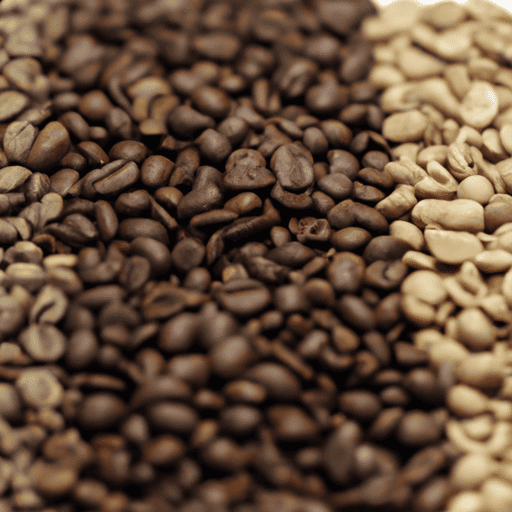
Here are some ways chia seeds can help fight inflammation:
- Rich in omega-3 fatty acids: Chia seeds are an excellent source of omega-3s, which have been shown to reduce inflammation in the body.
- High in antioxidants: Antioxidants help neutralize harmful free radicals and reduce oxidative stress, which can lead to inflammation.
- Fiber content: Chia seeds are a great source of fiber, which helps promote a healthy gut and reduce inflammation in the digestive system.
- Protein power: Chia seeds are a plant-based protein source that can help support muscle repair and reduce inflammation in the body.
- Essential minerals: Chia seeds contain essential minerals like magnesium and zinc, which play a role in reducing inflammation and supporting overall gut health.
Incorporating chia seeds into your diet can be a simple yet effective way to harness their inflammation-fighting properties and support a healthy gut.
Gut Health Benefits
As we delve into the gut health benefits of chia seeds and their role in reducing inflammation, it’s important to recognize the significant impact these tiny seeds can have on our overall well-being.
Chia seeds are known for their high fiber content, which aids in promoting a healthy digestive system. By promoting regular bowel movements, chia seeds can help prevent constipation and keep our gut functioning optimally.

Furthermore, chia seeds have been found to have anti-inflammatory properties. Chronic inflammation in the gut can lead to a range of health issues, including digestive disorders and weight gain. Studies have shown that chia seeds can help reduce inflammation in the gut, thereby improving gut health and potentially aiding in weight loss.
Incorporating chia seeds into our diet is simple. We can sprinkle them on top of our morning yogurt or oatmeal, add them to smoothies, or use them as an egg substitute in baking.
Reducing Gut Inflammation
Adding chia seeds to our diet can significantly reduce gut inflammation, improving our overall gut health. Here are some ways in which chia seeds can help reduce gut inflammation:
- Omega-3 fatty acids: Chia seeds are rich in omega-3 fatty acids, which have been shown to have anti-inflammatory effects. These fatty acids help reduce inflammation in the gut, alleviating symptoms such as bloating and discomfort.
- Fiber: Chia seeds are packed with fiber, which helps promote healthy digestion and reduce inflammation. Fiber acts as a prebiotic, feeding the beneficial bacteria in our gut and supporting a healthy gut microbiome.
- Antioxidants: Chia seeds contain antioxidants, such as flavonoids and phenolic compounds, which have been shown to reduce inflammation and protect against oxidative stress in the gut.
- Stress reduction: Chronic stress has been linked to gut inflammation. Chia seeds contain nutrients like magnesium, which can help reduce stress and promote a healthy gut.
- Immune system support: A healthy gut is closely linked to a strong immune system. Chia seeds contain nutrients like zinc and vitamin C, which support immune function and help reduce inflammation in the gut.
Chia Seeds and Improved Nutrient Absorption
One way we can improve nutrient absorption in our bodies is by incorporating chia seeds into our diet. Chia seeds are tiny black seeds that are packed with essential nutrients like fiber, protein, omega-3 fatty acids, and antioxidants. These nutrients not only support our overall health but also play a vital role in improving gut health and nutrient absorption.

Chia seeds are rich in soluble fiber, which forms a gel-like substance when mixed with water. This gel-like substance helps to slow down the digestion process, allowing our bodies to absorb nutrients more efficiently. Additionally, the fiber in chia seeds acts as a prebiotic, providing food for our beneficial gut bacteria. This promotes a healthy gut microbiome, which is essential for optimal nutrient absorption.
Incorporating chia seeds into our diet is simple. We can sprinkle them on top of yogurt, blend them into smoothies, or use them as an egg substitute in baking. By incorporating chia seeds into our daily routine, we can improve nutrient absorption and support our gut health.
Chia Seeds and Enhanced Bowel Regularity
To continue our discussion on the benefits of chia seeds for gut health, let’s explore how incorporating these seeds into our diet can enhance bowel regularity.
Chia seeds are packed with fiber, which is crucial for maintaining a healthy digestive system. Here are five reasons why chia seeds can improve your bowel regularity:
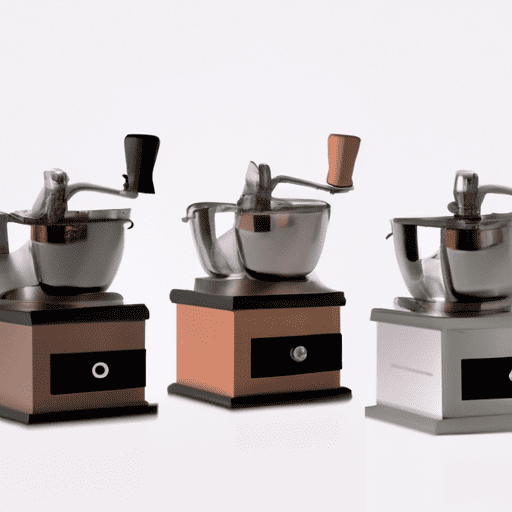
- High fiber content: Chia seeds are an excellent source of soluble and insoluble fiber, which helps promote regular bowel movements.
- Enhanced hydration: When consumed, chia seeds absorb liquid and form a gel-like substance in the digestive tract, which can help soften stools and prevent constipation.
- Weight management: Chia seeds can aid in weight management by promoting feelings of fullness and reducing overeating, which can contribute to irregular bowel movements.
- Balancing gut bacteria: Chia seeds contain prebiotics that serve as food for beneficial gut bacteria, supporting a healthy gut microbiome and promoting regularity.
- Overall digestive health: By supporting optimal digestion and nutrient absorption, chia seeds contribute to a healthy gut environment, which is essential for regular bowel movements.
Incorporating chia seeds into our diet can be an easy and effective way to improve bowel regularity, enhance hydration, and support weight management.
Chia Seeds and Reduced Bloating
With chia seeds, we can experience reduced bloating. Chia seeds are rich in fiber, which helps to improve digestion and prevent constipation. When we consume chia seeds, they absorb water and form a gel-like substance in our digestive system. This gel helps to soften and bulk up our stool, making it easier to pass. By promoting regular bowel movements, chia seeds can help reduce bloating and discomfort.
In addition to relieving bloating, chia seeds have other benefits for our gut health. They can aid in weight loss by promoting feelings of fullness and reducing appetite. The high fiber content of chia seeds also helps to regulate blood sugar levels and lower cholesterol, which is beneficial for heart health. Incorporating chia seeds into our diet can be a simple and effective way to support a healthy gut and overall well-being.
Chia Seeds and Increased Satiety
Chia seeds increase feelings of fullness, helping us to eat less and maintain a healthy weight. Incorporating chia seeds into our diet can be beneficial for appetite control and promoting a sense of satisfaction after meals. Here are five reasons why chia seeds can increase fullness:

- High in fiber: Chia seeds are packed with fiber, which absorbs water and expands in the stomach, promoting a feeling of fullness.
- Protein content: Chia seeds are a good source of plant-based protein, which can help curb hunger and reduce overall calorie intake.
- Healthy fats: Chia seeds are rich in omega-3 fatty acids, which have been shown to enhance satiety and reduce appetite.
- Slow digestion: Due to their gel-like consistency when mixed with liquid, chia seeds slow down digestion, allowing us to feel full for longer.
- Nutrient density: Chia seeds are packed with essential vitamins, minerals, and antioxidants, providing nourishment and helping to regulate appetite.
Chia Seeds and Overall Gut Wellness
Continuing from the previous subtopic, incorporating chia seeds into our diet offers numerous benefits for our overall gut wellness.
Chia seeds are packed with fiber, which is essential for a healthy digestive system. Fiber helps regulate bowel movements, prevents constipation, and promotes the growth of beneficial gut bacteria.
Chia seeds also contain omega-3 fatty acids, which have anti-inflammatory properties and can reduce gut inflammation. Additionally, chia seeds can aid in weight loss. When consumed, they absorb water and expand in the stomach, creating a feeling of fullness and reducing appetite. This can help control calorie intake and promote healthy weight management.
To incorporate chia seeds into your diet, try adding them to smoothies, yogurt, or oatmeal. You can also use them as an egg substitute in baking recipes.

With their numerous health benefits and versatility in recipes, chia seeds are a great addition to support overall gut wellness and weight loss.
Frequently Asked Questions
Can Chia Seeds Be Consumed by Individuals With Digestive Disorders Such as Irritable Bowel Syndrome (Ibs) or Crohn’s Disease?
Chia seeds can be consumed by individuals with digestive disorders such as IBS or Crohn’s disease. They have been found to improve gut health and can be incorporated into a gut healthy diet.
Are There Any Potential Side Effects or Risks Associated With Consuming Chia Seeds for Gut Health?
There are potential risks associated with consuming chia seeds for gut health, but when consumed in moderation, they can provide numerous benefits. The recommended daily intake of chia seeds for gut health is around 1-2 tablespoons.
How Do Chia Seeds Compare to Other Types of Seeds in Terms of Their Impact on Gut Health?
When comparing chia seeds to other types of seeds, it’s important to consider their impact on gut health. Incorporating seeds like chia or flax into a gut-healthy diet can provide numerous benefits.

Can Chia Seeds Help Alleviate Symptoms of Acid Reflux or Heartburn?
Chia seeds can be beneficial for alleviating symptoms of acid reflux or heartburn. They have properties that can help soothe the digestive system and reduce inflammation, making them a natural remedy for digestive disorders.
Are There Any Specific Recommendations or Guidelines for Incorporating Chia Seeds Into a Gut-Healthy Diet?
Incorporating chia seeds into a gut-healthy diet can be beneficial. We recommend trying chia seed recipes, as these tiny seeds are packed with nutrients and can aid in weight loss.
Conclusion
In conclusion, incorporating chia seeds into your diet can have a profound impact on your gut health. These small but mighty seeds help regulate digestion, promote healthy gut bacteria, reduce inflammation, and improve nutrient absorption.
They also enhance bowel regularity, reduce bloating, increase satiety, and contribute to overall gut wellness. So, just like seeds that bring life to a barren land, chia seeds can bring vitality and balance to your gut, ensuring a healthy and thriving digestive system.

Hi, I’m Sarah. I write for Turtle Tree Seeds, a news blog that loves food – all kinds of food. But especially bacon, chocolate, and veggies. We’re on a mission to show the world that you can enjoy all of those things, even kale and brussels sprouts. Because we believe that when it comes to food, there’s no such thing as guilty pleasures. Just pleasures.
I’m also a huge fan of puns (obviously).
Chia Seeds and Digestive Health
Securely Managing Constipation With Time-Honored Seeds

Many people believe that dealing with constipation has to be uncomfortable, but we have discovered a simple and traditional solution that can alleviate discomfort and promote healthy digestion: chia seeds.
In this article, we’ll show you how incorporating these tiny powerhouses into your diet can make a world of difference. Get ready to say goodbye to constipation and hello to a happier, more regular you.
Let’s dive in!
Key Takeaways
- Chia seeds are a rich source of dietary fiber, promoting digestive health.
- Chia seeds alleviate constipation by adding bulk to the stool and aiding in hydration and lubrication of the intestines.
- Including chia seeds in your diet through smoothies or chia seed pudding can help relieve constipation.
- It is important to start with small amounts of chia seeds, drink plenty of water, and consult with a healthcare provider if necessary when using chia seeds for constipation relief.
The Role of Chia Seeds in Digestive Health
Chia seeds offer significant benefits for our digestive health by providing a rich source of dietary fiber. These tiny seeds are packed with fiber, which aids in weight loss by promoting satiety and preventing overeating.

Additionally, the soluble fiber found in chia seeds helps to lower cholesterol levels, reducing the risk of heart disease and promoting heart health. Consuming chia seeds regularly can contribute to maintaining a healthy weight and reducing the risk of cardiovascular issues.
However, their benefits extend beyond weight loss and heart health. Chia seeds are also known to alleviate constipation by absorbing water and forming a gel-like substance in the digestive tract, which helps to soften stool and promote regular bowel movements.
Now, let’s explore how chia seeds alleviate constipation.
How Chia Seeds Alleviate Constipation
Continuing our exploration of the benefits of chia seeds in digestive health, let’s now delve into how these time-honored seeds effectively alleviate constipation.

Chia seeds are renowned for their fiber content, which plays a crucial role in promoting regular bowel movements and relieving constipation. Here’s how chia seeds work their magic:
- Fiber-rich composition: Chia seeds are packed with soluble and insoluble fiber, which adds bulk to the stool and helps move waste through the digestive system efficiently.
- Hydration and lubrication: When mixed with liquid, chia seeds form a gel-like substance that aids in hydration and lubrication of the intestines, making it easier to pass stools.
Incorporating Chia Seeds Into Your Diet
Now that we understand how chia seeds alleviate constipation, how can we incorporate them into our diet for optimal digestive health?
One delicious way to enjoy the benefits of chia seeds is by including them in smoothie recipes. Simply blend together your favorite fruits, vegetables, and a tablespoon of chia seeds for a nutrient-packed beverage that aids digestion.
Another option is to make chia seed pudding, which can be a satisfying and gentle way to support regular bowel movements. To make chia seed pudding, combine chia seeds with your choice of liquid, such as almond milk or coconut milk, and let it sit overnight in the refrigerator. In the morning, you’ll have a creamy and fiber-rich pudding that promotes a healthy digestive system.

Chia Seed Recipes for Relieving Constipation
To effectively relieve constipation, we can incorporate chia seeds into our diet through various delicious recipes. Here are two simple and tasty options:
- Chia Seed Smoothies:
- Blend 1 cup of your favorite fruits (such as berries or banana) with 2 tablespoons of chia seeds and 1 cup of liquid (milk, yogurt, or plant-based milk).
- Enjoy a fiber-rich and refreshing smoothie that can help promote regular bowel movements.
- Chia Seed Pudding:
- Combine 1/4 cup of chia seeds with 1 cup of milk (dairy or non-dairy), a sweetener of your choice (such as honey or maple syrup), and flavorings (like vanilla extract or cocoa powder).
- Let it sit in the fridge overnight or for at least 4 hours until it thickens into a pudding-like consistency.
- Indulge in a creamy and nutritious treat that can aid in relieving constipation.
Incorporating these chia seed recipes into our diet can provide a convenient and enjoyable way to support regularity and alleviate constipation.
Tips and Precautions for Using Chia Seeds for Constipation
Incorporating chia seeds into our diet for constipation relief requires some tips and precautions to ensure safe and effective usage. Chia seeds have gained popularity due to their numerous health benefits, including their ability to promote bowel regularity.
However, it’s important to be aware of potential side effects and take necessary precautions when using chia seeds for constipation. Firstly, it’s crucial to start with small amounts and gradually increase the intake to avoid digestive discomfort.

Additionally, it’s important to drink plenty of water when consuming chia seeds as they absorb liquid and can cause dehydration if not properly hydrated.
Lastly, individuals with certain medical conditions such as swallowing difficulties or bowel obstructions should consult with their healthcare provider before incorporating chia seeds into their diet.
Frequently Asked Questions
Can Chia Seeds Cause Any Side Effects When Used for Constipation Relief?
Chia seeds may have potential side effects when used for constipation relief, such as bloating or gas. To incorporate chia seeds into your diet for constipation relief, start with a small amount and gradually increase intake while staying hydrated.
Are There Any Specific Guidelines or Recommended Dosages for Using Chia Seeds to Relieve Constipation?
There are recommended dosages for chia seeds to relieve constipation, and they can provide potential benefits for overall digestive health. It’s important to follow these guidelines for safe and effective use.

Can Chia Seeds Be Used to Treat Chronic Constipation?
Yes, chia seeds can be used as an alternative remedy for chronic constipation. They are rich in dietary fiber, which plays a crucial role in promoting digestive health and relieving constipation.
Are There Any Contraindications or Precautions for Using Chia Seeds for Constipation Relief?
There are no known contraindications or precautions for using chia seeds for constipation relief. However, potential side effects may include bloating or gas. It’s always best to consult with a healthcare professional for personalized advice.
How Long Does It Typically Take for Chia Seeds to Alleviate Constipation Symptoms?
Chia seeds can help alleviate constipation symptoms. We can incorporate them into our diet for relief. It typically takes a few days for chia seeds to work their magic and provide relief.
Conclusion
In conclusion, chia seeds are a time-honored and effective solution for managing constipation. Their rich fiber content and ability to absorb water make them a natural remedy for promoting healthy digestion.

By incorporating chia seeds into your diet and trying out some delicious recipes, you can alleviate constipation and improve your overall digestive health.
Remember to follow the tips and precautions mentioned to ensure safe and effective use of chia seeds for constipation relief.
Hi, I’m Sarah. I write for Turtle Tree Seeds, a news blog that loves food – all kinds of food. But especially bacon, chocolate, and veggies. We’re on a mission to show the world that you can enjoy all of those things, even kale and brussels sprouts. Because we believe that when it comes to food, there’s no such thing as guilty pleasures. Just pleasures.
I’m also a huge fan of puns (obviously).
Chia Seeds and Digestive Health
10 Best Ways Seeds Aid Digestive Health

You may be asking yourself: Can something as small as a seed really help with digestive health? Prepare to be amazed.
In this article, we’re going to share with you the 10 best ways seeds can aid your digestion. From chia seeds supporting intestinal health to their natural remedies for digestive discomfort, we’ve got you covered.
So sit back, relax, and get ready to discover the incredible benefits of seeds for your digestive system.
Key Takeaways
- Chia seeds are a rich source of fiber, which promotes regular bowel movements and prevents constipation.
- The fiber in chia seeds also helps in reducing appetite and promoting weight loss.
- Chia seeds’ soluble fiber can lower cholesterol levels, reducing the risk of heart disease.
- Chia seeds support gut health by promoting the growth of beneficial bacteria, reducing inflammation, and improving overall digestion.
Chia Seeds and Gut Health
Chia seeds contribute to improved gut health through their ability to regulate digestion and alleviate digestive issues. These tiny seeds are packed with fiber, which is essential for maintaining a healthy digestive system. Fiber acts as a prebiotic, providing food for the beneficial bacteria in our gut, promoting their growth and diversity. This, in turn, helps to enhance digestion and prevent constipation.
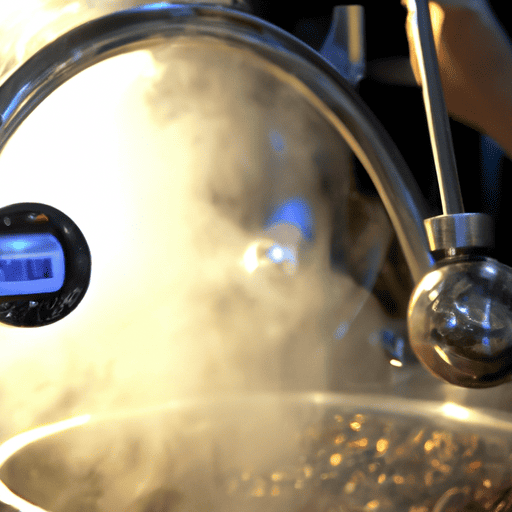
Chia seeds also contain omega-3 fatty acids, which have anti-inflammatory properties that can reduce inflammation in the gut and alleviate symptoms of digestive disorders such as irritable bowel syndrome (IBS). Additionally, chia seeds are rich in antioxidants, which can protect the gut lining from damage caused by oxidative stress.
It’s important to note that while chia seeds offer numerous benefits for gut health, it’s essential to consume them in moderation and with plenty of fluids to avoid potential side effects such as bloating or constipation.
The Role of Chia Seeds in Digestion
As we continue exploring the benefits of seeds for digestive health, it’s important to delve into the role that chia seeds play in improving digestion. Chia seeds aren’t only packed with essential nutrients, but they also contain high amounts of fiber, which is beneficial for maintaining a healthy digestive system.
Here are four ways chia seeds can aid digestion:

- Promote regular bowel movements: The fiber content in chia seeds helps add bulk to your stool, making it easier to pass through the digestive tract.
- Prevent constipation: Chia seeds act as a natural laxative, keeping your bowel movements regular and preventing constipation.
- Reduce inflammation: Chia seeds are rich in omega-3 fatty acids, which have anti-inflammatory properties that can help soothe the digestive system.
- Improve gut health: The soluble fiber in chia seeds acts as a prebiotic, nourishing the beneficial bacteria in your gut and promoting a healthy gut microbiome.
To incorporate chia seeds into your daily meals, you can sprinkle them on top of yogurt, blend them into smoothies, or use them as an egg substitute in baked goods. By including chia seeds in your diet, you can enjoy the benefits of improved digestion and overall health.
How Chia Seeds Support Intestinal Health
How do chia seeds contribute to the support of intestinal health?
Chia seeds are a natural remedy for digestive issues such as constipation and bloating. These tiny seeds are packed with fiber, which helps regulate bowel movements and promote a healthy digestive system. The soluble fiber in chia seeds absorbs water, forming a gel-like substance that adds bulk to the stool and aids in its smooth passage through the intestines. This helps prevent constipation and promotes regularity.
Additionally, chia seeds contain beneficial omega-3 fatty acids, which have anti-inflammatory properties that can help reduce bloating and discomfort in the digestive tract. By incorporating chia seeds into your diet, you can support your intestinal health and improve overall digestion.

Now, let’s explore how chia seeds can be used as a natural digestive remedy.
Chia Seeds as a Natural Digestive Remedy
Chia seeds have long been recognized for their ability to promote digestion and alleviate digestive issues.
As a natural remedy, chia seeds are rich in fiber, which helps to regulate bowel movements and prevent constipation.
Additionally, chia seeds contain essential fatty acids that can reduce inflammation in the digestive tract, further supporting a healthy digestive system.

Chia Seeds Promote Digestion
We’ve discovered that incorporating chia seeds into our diet promotes digestion and serves as a natural digestive remedy. Here are four reasons why chia seeds are beneficial for digestive health:
- High Fiber Content: Chia seeds are an excellent source of fiber, which helps regulate bowel movements and prevent constipation. A single ounce of chia seeds contains a whopping 10 grams of fiber, making it an easy and convenient way to increase your daily fiber intake.
- Omega-3 Fatty Acids: Chia seeds are rich in omega-3 fatty acids, which have been shown to reduce inflammation in the digestive tract and promote overall gut health. These healthy fats can help alleviate symptoms of digestive disorders such as Crohn’s disease and ulcerative colitis.
- Hydration: When soaked in water, chia seeds form a gel-like substance that can help keep your digestive system hydrated. This can prevent common digestive issues like bloating and indigestion.
- Antioxidants: Chia seeds are packed with antioxidants, which can help protect the digestive system from damage caused by free radicals. These antioxidants also support heart health and may aid in weight loss.
Incorporating chia seeds into your diet can be a simple and effective way to promote digestion and maintain a healthy gut.
Natural Remedy for Digestion
Incorporating chia seeds into our diet continues to be a natural remedy for digestion, thanks to their numerous health benefits. Chia seeds are packed with fiber, which is essential for maintaining a healthy digestive system. Fiber helps to promote regular bowel movements and prevent constipation.
Additionally, chia seeds are rich in omega-3 fatty acids, which have been shown to reduce inflammation in the gut and improve overall digestive health. These tiny seeds also contain antioxidants, which can help protect the digestive system from damage caused by free radicals.

Chia seeds can be easily incorporated into our daily routine by adding them to smoothies, yogurt, or oatmeal. Their natural digestive health benefits make them an excellent choice for those seeking natural digestion remedies.
The Fiber Power of Chia Seeds for Digestion
Chia seeds are a powerhouse of fiber, making them an excellent addition to support digestive health. With a whopping 10 grams of fiber per ounce, chia seeds provide a significant portion of the recommended daily intake.
This high fiber content helps promote regular bowel movements, prevent constipation, and support overall gastrointestinal functioning.
Chia Seeds and Fiber
One key element for optimal digestion is the high fiber content found in chia seeds. Incorporating chia seeds into your diet can provide numerous benefits for digestive health. Here are four ways chia seeds and fiber can help support digestion:

- Aid in Weight Loss: Chia seeds are packed with fiber, which can help you feel full and satisfied. This can prevent overeating and promote weight loss.
- Improve Bowel Regularity: The soluble fiber in chia seeds absorbs water, forming a gel-like substance that adds bulk to the stool. This can help regulate bowel movements and prevent constipation.
- Support Gut Health: The fiber in chia seeds acts as a prebiotic, providing nourishment for beneficial gut bacteria. This can promote a healthy gut microbiome and improve overall digestion.
- Enhance Recipes: Chia seeds can easily be incorporated into recipes like smoothies, oatmeal, and baked goods. This adds a boost of fiber and nutrients to your meals, improving digestion and overall health.
By incorporating chia seeds and their fiber content into your diet, you can enjoy improved digestion and reap the many benefits they offer.
Now, let’s explore the digestive benefits of chia in more detail.
Digestive Benefits of Chia
To fully understand the digestive benefits of chia seeds, let’s delve into the fiber power they possess for enhancing digestion.
Chia seeds are known for their high fiber content, which plays a crucial role in promoting digestive health. The soluble fiber found in chia seeds forms a gel-like substance when mixed with water, which helps to soften the stool and prevent constipation. This gentle laxative effect can aid in maintaining regular bowel movements and preventing digestive discomfort.

Additionally, the fiber in chia seeds can also contribute to weight loss by promoting a feeling of fullness and reducing appetite.
Furthermore, research suggests that chia seeds may have a positive impact on heart health. The soluble fiber in chia seeds can help to lower cholesterol levels, reducing the risk of heart disease.
Incorporating chia seeds into your diet can be a simple and effective way to support both digestive and heart health.
Chia Seeds and Balancing Gut Microbiota
In our quest for optimal digestive health, we explore how chia seeds contribute to balancing the gut microbiota. Chia seeds aren’t only packed with essential nutrients and fiber, but they also play a crucial role in maintaining a healthy balance of gut bacteria.

Here are four ways chia seeds help in balancing gut microbiota and improving digestion:
- Rich in fiber: Chia seeds are an excellent source of soluble and insoluble fiber, which promotes the growth of beneficial bacteria and helps regulate bowel movements.
- Prebiotic properties: Chia seeds contain prebiotics that serve as food for probiotics, the good bacteria in our gut, promoting their growth and enhancing overall gut health.
- Anti-inflammatory effects: Chia seeds possess anti-inflammatory properties that can help reduce gut inflammation and support a healthy gut environment.
- Omega-3 fatty acids: Chia seeds are a fantastic plant-based source of omega-3 fatty acids, which have been shown to improve gut health and reduce the risk of digestive disorders.
With their ability to balance gut microbiota, chia seeds are a soothing aid for digestive disorders.
Chia Seeds: A Soothing Aid for Digestive Disorders
Now let’s delve into how chia seeds can be a soothing aid for digestive disorders, building upon the previous subtopic’s exploration of their role in balancing gut microbiota.
Chia seeds have gained popularity not only for their ability to support digestion but also for their potential impact on weight loss and heart health. These tiny seeds are packed with fiber, which can promote satiety and help regulate bowel movements, making them a valuable tool for those struggling with digestive disorders.

Additionally, the soluble fiber found in chia seeds can help lower cholesterol levels and reduce the risk of heart disease. Incorporating chia seeds into your diet may not only provide relief for digestive issues but also contribute to overall well-being by supporting weight management and heart health.
Enhancing Digestive Enzymes With Chia Seeds
As we explore the role of chia seeds in promoting digestive health, let’s now delve into how these tiny seeds can enhance digestive enzymes.
Chia seeds have been found to increase enzyme activity in the digestive system, which can improve the breakdown and absorption of nutrients from the food we eat.
Here are four ways chia seeds can enhance digestive enzymes:

- Increase amylase activity: Amylase is an enzyme responsible for breaking down carbohydrates. Chia seeds have been shown to increase amylase activity, aiding in the digestion of carbohydrates.
- Boost lipase production: Lipase is an enzyme that helps break down fats. Chia seeds can enhance lipase production, leading to better fat digestion and absorption.
- Improve protease function: Protease is an enzyme that breaks down proteins. Chia seeds have been found to enhance protease function, facilitating the digestion and absorption of proteins.
- Enhance overall enzyme activity: Chia seeds have been shown to increase the overall activity of digestive enzymes, ensuring efficient digestion and nutrient absorption.
By enhancing enzyme activity, chia seeds can optimize the digestive process and improve nutrient absorption.
In the next section, we’ll explore how chia seeds can regulate bowel movements, further supporting digestive health.
Chia Seeds and Regulating Bowel Movements
Chia seeds have gained popularity for their ability to act as a natural laxative and promote regular bowel movements. These tiny seeds are rich in fiber, which adds bulk to the stool and helps regulate digestion.
Including chia seeds in your diet can provide a gentle and effective way to maintain a healthy digestive system.

Chia as Natural Laxative
One of the benefits of incorporating seeds into our diet is their ability to regulate bowel movements and act as a natural laxative. Chia seeds, in particular, have gained popularity for their digestive health benefits.
Here are four reasons why chia seeds can help with regulating bowel movements:
- High Fiber Content: Chia seeds are rich in fiber, which adds bulk to the stool and promotes regular bowel movements.
- Hydration: When consumed, chia seeds absorb water and form a gel-like substance. This helps to soften the stool and ease its passage through the digestive tract.
- Omega-3 Fatty Acids: Chia seeds contain omega-3 fatty acids, which have anti-inflammatory properties. This can help reduce inflammation in the digestive system and promote better bowel movements.
- Gut Health: Chia seeds contain prebiotics, which nourish the beneficial bacteria in the gut. A healthy gut microbiome is crucial for proper digestion and regular bowel movements.
Incorporating chia seeds into your diet can be an effective and natural way to improve digestive health and regulate bowel movements.
Promotes Regular Bowel Movements
After discussing the benefits of chia seeds in regulating bowel movements, it is important to note that incorporating these seeds into our diet promotes regularity and aids in digestive health. Chia seeds are a rich source of fiber, which plays a crucial role in promoting gut health and aiding digestion. Fiber adds bulk to the stool, making it easier to pass through the digestive system and preventing constipation. Moreover, chia seeds absorb water and form a gel-like substance in the stomach, which helps to soften the stool and facilitate bowel movements. To highlight the benefits of chia seeds in promoting regular bowel movements, the following table provides a comparison of the fiber content of chia seeds with other common foods:

| Food | Fiber Content (per 1 oz) |
|---|---|
| Chia Seeds | 10 grams |
| Oatmeal | 3 grams |
| Apples | 2 grams |
| Carrots | 1 gram |
Incorporating chia seeds into our diet can significantly contribute to a healthy digestive system and regular bowel movements. As we explore further, we will discuss how chia seeds can regulate digestion and improve overall gut health.
Regulating Digestion With Chia
To further enhance our understanding of how chia seeds contribute to digestive health, how can we regulate digestion with the incorporation of chia seeds? Here are four ways chia seeds can help regulate digestion:
- Increasing fiber intake: Chia seeds are packed with fiber, which adds bulk to the stool and promotes regular bowel movements. This can help prevent constipation and keep the digestive system running smoothly.
- Promoting gut health: Chia seeds are a prebiotic, which means they provide nourishment to the beneficial bacteria in our gut. This can help improve digestion and nutrient absorption.
- Relieving bloating and gas: Chia seeds have anti-inflammatory properties that can help soothe the digestive system and reduce bloating and gas.
- Adding moisture to the stool: Chia seeds absorb water and form a gel-like substance in the digestive tract. This can help soften the stool and make it easier to pass.
By incorporating chia seeds into our diet through chia seed recipes, we can enjoy their numerous digestive benefits.
Now, let’s explore how chia seeds can alleviate digestive discomfort.

Chia Seeds and Alleviating Digestive Discomfort
We have found that incorporating chia seeds into our diet significantly alleviates digestive discomfort. Chia seeds are rich in fiber, which helps regulate bowel movements and prevent constipation. They absorb water and form a gel-like substance in the digestive tract, promoting smooth and regular bowel movements. Additionally, chia seeds can help reduce bloating and gas. The high fiber content in chia seeds aids in digestion by promoting the growth of beneficial gut bacteria and preventing the build-up of harmful bacteria. It is important to note that chia seeds should be consumed in moderation and gradually increased to avoid any potential digestive issues. See the table below for a quick summary of the benefits of chia seeds for digestive health:
| Benefits of Chia Seeds for Digestive Health |
|---|
| 1. Alleviates constipation |
| 2. Reduces bloating and gas |
| 3. Promotes regular bowel movements |
| 4. Supports the growth of beneficial gut bacteria |
Frequently Asked Questions
Can Chia Seeds Be Harmful to Digestive Health if Consumed in Excess?
Excessive chia seed consumption may pose potential risks to digestive health. Long term effects of consuming too many chia seeds are still unclear. It’s important to consume them in moderation and consult a healthcare professional if concerned.
Are There Any Potential Side Effects of Consuming Chia Seeds for Digestion?
There are potential risks associated with consuming chia seeds for digestion. It is important to take precautions and not consume them in excess. Consulting with a healthcare professional is advisable.
How Do Chia Seeds Compare to Other Seeds in Terms of Their Digestive Health Benefits?
When comparing the digestive health benefits of chia seeds with other seeds, we found that chia seeds have a positive impact on overall gut health. They are a great addition to a balanced diet.

Can Chia Seeds Help With Specific Digestive Conditions Such as Irritable Bowel Syndrome or Acid Reflux?
Chia seeds have been shown to have positive effects on the gut microbiome and may serve as a natural remedy for digestive disorders such as irritable bowel syndrome and acid reflux.
What Is the Recommended Daily Intake of Chia Seeds for Optimal Digestive Health?
For optimal digestive health, the recommended daily intake of chia seeds varies. It’s important to note potential side effects such as bloating or diarrhea. Consulting a healthcare professional can help determine the right amount for you.
Conclusion
In conclusion, chia seeds offer a multitude of benefits for digestive health. They support gut health, alleviate digestive disorders, and regulate bowel movements.
With their high fiber content and ability to enhance digestive enzymes, chia seeds provide a natural and soothing aid for digestive discomfort.

Incorporating these tiny powerhouses into your diet can contribute to a healthier digestive system and overall well-being.
Hi, I’m Sarah. I write for Turtle Tree Seeds, a news blog that loves food – all kinds of food. But especially bacon, chocolate, and veggies. We’re on a mission to show the world that you can enjoy all of those things, even kale and brussels sprouts. Because we believe that when it comes to food, there’s no such thing as guilty pleasures. Just pleasures.
I’m also a huge fan of puns (obviously).
-

 Chia Seeds3 months ago
Chia Seeds3 months agoCan Cats Have Chia Seeds?
-

 Chia Seeds3 months ago
Chia Seeds3 months agoHow Do Chia Seeds Go Bad?
-

 Chia Seeds3 months ago
Chia Seeds3 months agoDo Chia Seeds Make You Poop?
-

 Health Risks and Allergies Related to Chia Seeds3 months ago
Health Risks and Allergies Related to Chia Seeds3 months agoWhy Do Chia Seeds Gel
-

 Chia Seeds3 months ago
Chia Seeds3 months agoHow to Use Chia Seeds For Weight Loss
-

 Chia Seeds and Digestive Health2 weeks ago
Chia Seeds and Digestive Health2 weeks agoWhy Are Chia Seeds Beneficial For Gut Health?
-

 Chia Seeds3 months ago
Chia Seeds3 months agoHealth Benefits of Chia Seeds For Dogs
-

 Chia Seeds in Gluten-Free Diets2 months ago
Chia Seeds in Gluten-Free Diets2 months agoYour Dependable Guide: Chia as a Gluten Substitute




